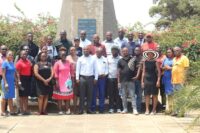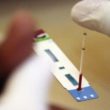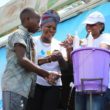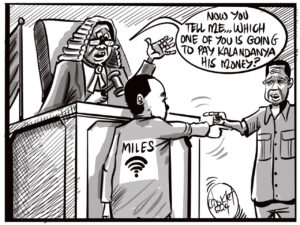MEDICAL expert Dr Aaron Mujajati says it is important for Zambians to adhere to proper hygiene standards to prevent the spread of COVID-19 in the country.
In an interview, Dr Mujajati, the former Medical Association of Zambia president, said it was important to wash hands with soap to prevent COVID-19 as the virus completely dies out.
“The rationale is very simple: this organism completely washes out with water and it also dies with soap; it washes off with water and soap. That is why we are saying wash your hands with soap. Even if you have an ordinary flu, the same COVID-19 measures would protect you from getting a flu; wash your hands; you avoid handshakes; you avoid physical contact and don’t touch your face; it is the same thing,” Dr Mujajati said.
“With cholera and other bacterial infections, it is the same; wash your hands; avoid contact; avoid touching people… Measures are the same. Even if it is Typhoid, if I tell you to wash your hands and avoid touching people; avoid unnecessary contact, you won’t catch Typhoid, but if you ignore what I am telling you, you don’t wash your hands, you just touch things anyhow, you contact people anyhow; you will contract Typhoid, and Typhoid is a bacteria.”
He explained that what determined the prevention of any infectious disease was its mode of transmission from one individual to another.
“HIV is a virus; do you prevent HIV by washing your hands? So, any preventive measure you are given as a public for public health purposes is linked to the transportation of that organism. For example, TB is a bacteria; you are not going to tell people ‘to prevent TB, go and wash your hands’. Cholera is a bacteria, but I am going to tell you ‘go and wash your hands’. You cannot say that, ‘this is not a bacteria, therefore, don’t wash your hands,’ no! And you cannot say that, ‘washing of hands is for bacteria only,’ no! You can’t say that because TB is a bacteria, do you wash your hands? So, prevention is linked to the mode of transmission of that given disease or that given organism; whether it is a fungi; whether it is a virus; whether it is a bacteria; it depends on the mode of transmission of that particular organism,” Dr Mujajati, the former Registrar of the Health Professions Council of Zambia, explained.
“You cannot say, ‘all bacteria, go and wash your hands;’ ‘all viruses, don’t wash your hands,’ that is not how it works. Any preventive measures that you are going to be given is dependent on how that particular organism is transmitted from one human being to another. HIV is a virus; have you ever heard of anyone to going to wash their hands to prevent HIV? But why are we telling you to wash your hands in COVID-19? It’s because of the mode of transmission. So, if we take it to bacteria, for example, Cholera is caused by a bacteria, but we tend to wash our hands; hygiene, clean your surroundings…TB is also a bacteria; do we tell you to clean your surrounding? No we don’t.”
He urged Zambians to take proactive measures to ensure good hygiene habits were implemented.
“The only problem is that we are reacting instead of being proactive. Ideally, these measures of hygiene, hygienic tendencies and hygiene behaviour should have been inculcated in the population from time immemorial; it should have been our culture, look at how we litter things around! Those things have consequences,” said Dr Mujajati.













One Response
How can we wash hands? Here in Chililabombwe Kakoso mapoloti we have no water for a month now. Mulonga water haven’t told us why except that there is a breakage. So how can we beat covit19?